My wearables drive me nuts keeping me up at night!
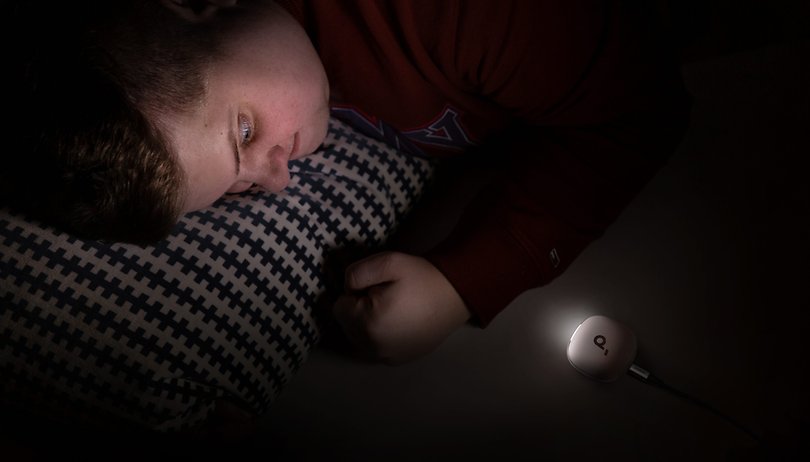

The LED indicators on my wearables are driving me crazy! Whether they are true wireless headphones, smartwatches, or fitness trackers, most of these smart devices have tiny LEDs on them. It is exactly those damned LEDs that have the annoying tendency to keep me awake, or even worse, to wake me up in the middle of the night. Which leads me right to the next question: WHY???!!!
For a long time, I was afraid of the dark. Heck, even today, I still take a quick look behind me whenever I run up the stairs (so that any hellspawn will not be able to catch me unawares) in the dark. I also wrap my feet securely underneath my comforter in fear of a monster chilling out beneath my bed, waiting for an opportunity to grab my feet. I admit it without any shame.
But when I sleep, I cannot stand having the slightest source of light around. I believe that I am not alone in this matter. I disable my smartphone's notifications, I program the Always-on Display to turn off, etc. However, not all tech products are so respectful of your sleep. I summon the Xiaomi Smart Band 7 (review), the Nothing ear (2) (review), or the Soundcore Liberty 4 (review) to the dock.
Let's be clear, these products are by no means the only ones that are guilty of this cardinal sin. They are simply the ones I recently used because I had them at hand. Keyboard warriors in the comments, please dry your tears.
LED indicators are plain boring
I totally understand the point of having an LED indicator on a wearable. Take wireless headphones, for example. They don't have a display. Having tiny LEDs on the case informs you of the current battery level and helps ensure that the pairing process was successful.
However, what the hell is the point of making these LEDs so bright? Do I really need to be able to see them from 3 km away and in broad daylight that my Nothing ear (2) is charging? No! Then why do I need them at night? THE... NIGHT... WHEN IT IS DARK!
I also know that on some products, you can enable the do-not-disturb mode and turn off the LEDs at your convenience. Don't even let me start on this. On the Xiaomi Smart Band 7, you can disable everything when you want to—only if you are willing to dive deep into the settings.
Even then, the biometric scanner at the back of the fitness tracker will work in the most relaxed manner and dazzles you with its blinding green light. This is sleep terrorism, and I have no other phrase for it.
Apart from this particular case, it is impossible to deactivate these demonic LEDs most of the time. On the Nothing ear (2), for example, it's impossible to deactivate the white LED when charging it at night.
The same goes for the Soundcore Liberty 4 which turns into a real lighthouse (check out the ranking of the brightest lighthouses in Europe which has nothing to do with this article, but it's an opinion post, so I do what I want).
Are there any negative health effects?
The impact of screens and blue light emitted by LEDs has been the subject of many studies. In particular, the effect of this type of light on our biological clock and our sleep rhythm. The question is, can a tiny LED indicator actually have a real impact on health?
I don't know, I'm not a scientist. However, an excellent article in Vice discussed an emerging scientific consensus on the effects of blue light on our bodies. Vice mentioned an article titled "Characteristics of the diurnal rhythm of luminescence in Gonyaulax polyedra" that was published in 1958 by researchers J. Woodland Hastings and Beatrice M. Sweeney.
They analyzed the impact of different colors of light on Gonyaulax polyedra, a kind of unicellular organism with the ability to emit light.
The paper, which predates LEDs by a few years, explained that the organism reacted differently to different light colors, with its strongest reaction being to the color blue, and perhaps less so to the color red. This affected their circadian rhythm, i.e. their sleep-wake cycle.
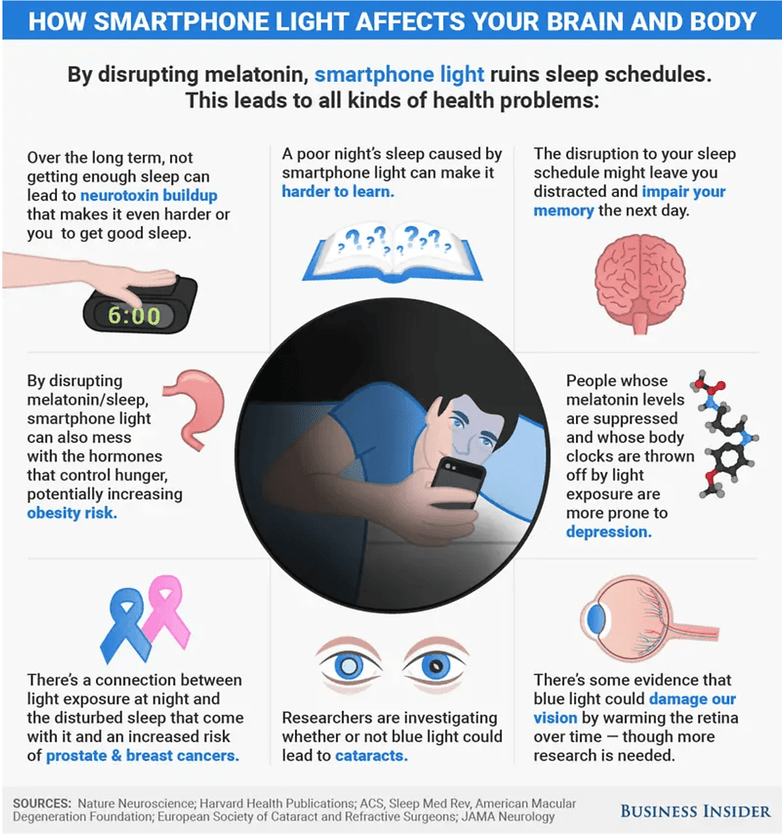
Decades later, in 2010, in a paper published in the scientific journal Environmental Health Perspectives, David C. Holzman explained how the same situation that affected single-celled organisms also affected humans.
According to Holzman, "Not only does light reset the human circadian rhythm, but the same blue light that has the strongest impact on dinoflagellates has the same power to reset our own.same power to reset our own clocks-although most visible wavelengths can reset the clock, blue light does the job most effectively."
Basically, it's not just blue lights that impact our body clock. Nevertheless, blue light happens to have the most noticeable impact.
Considering how we have taken a look at scientific sources, here is another one to mull over. The National Institute of Sleep and Vigilance in France published a report entitled Sleep and New Technologies in 2019.
In this report, we can read that the response of the circadian system to light depends on several characteristics: light intensity (20 to 50 lux/nits are enough to influence the biological clock), duration of exposure, timing, and spectrum (expressed in kelvin). According to the report, a blue monochromatic light can be as effective on the circadian system as a white fluorescent light 100 times more intense.
And it is precisely this type of light, between 6500 and 7000 kelvin, that these dirty LED indicators emit.
Let's put things into perspective, Antoine
I realized that I might have knocked you off your feet with a slew of scientific jargon. I know it's an almost insurmountable task to read an entire article in 2023. So here's a little image to reward and thank you for your available brain time.
This short video clip is a screen recording of a very rough test I did with an app that can measure the temperature of light. I locked myself in the office bathroom with the lights off. Following that, I plugged the Nothing ear box (2) into the mains so that the LED lights up.
You can see that the small white diode achieves the 8000 kelvin mark in no time at all. We are typically surrounded by the type of light that has the biggest impact on our circadian system. Even if the intensity is too low (in my opinion) to have the same effect as a smartphone screen or a PC, it still carries a negative impact.
Then again, I am not a scientist. I made my measurements totally on the fly and without a precise protocol or controlled environment. My measuring device was just an old iPhone and a paid app whose accuracy and real efficiency I cannot verify.
In any case, I'm pretty sure I'll get at least one comment like: "but lol, you coward, don't you have a nightstand with a closed compartment next to your bed, you poor thing?"
Definitely, this is an actual First World Problem that I'm talking about here. In absolute terms, who cares if Antoine Engels is whining because a little LED light is keeping him awake?
All I have to do is place my wearable device to charge in a drawer, on a night table, or just stop complaining incessantly about everything and anything. But you have to admit that it wouldn't be as much fun as writing a 2,000-word article on the subject, right?






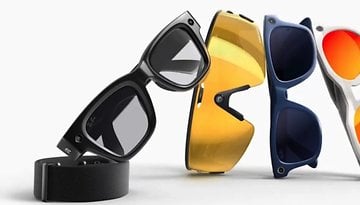
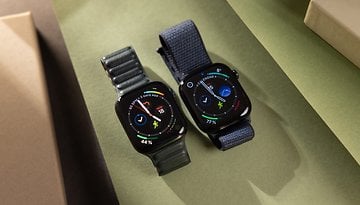
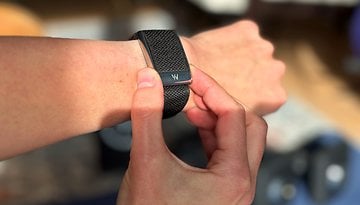
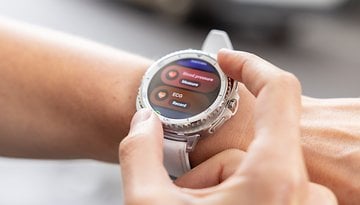
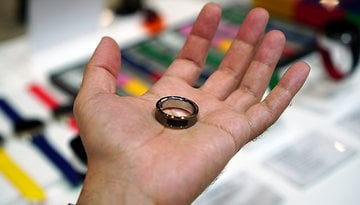
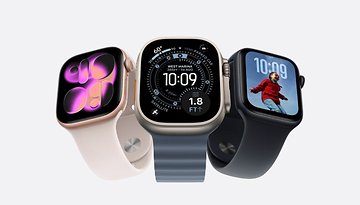
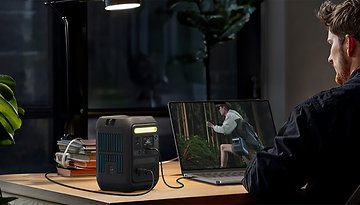

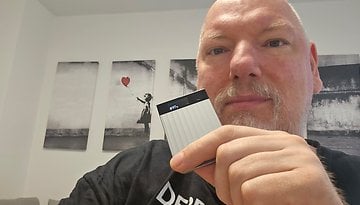


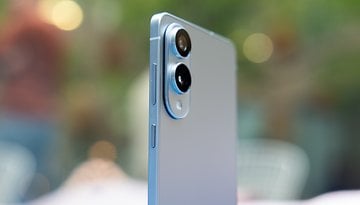


There's some indication that a sleep mask improves sleep generally. Certainly solves night time status lights too.